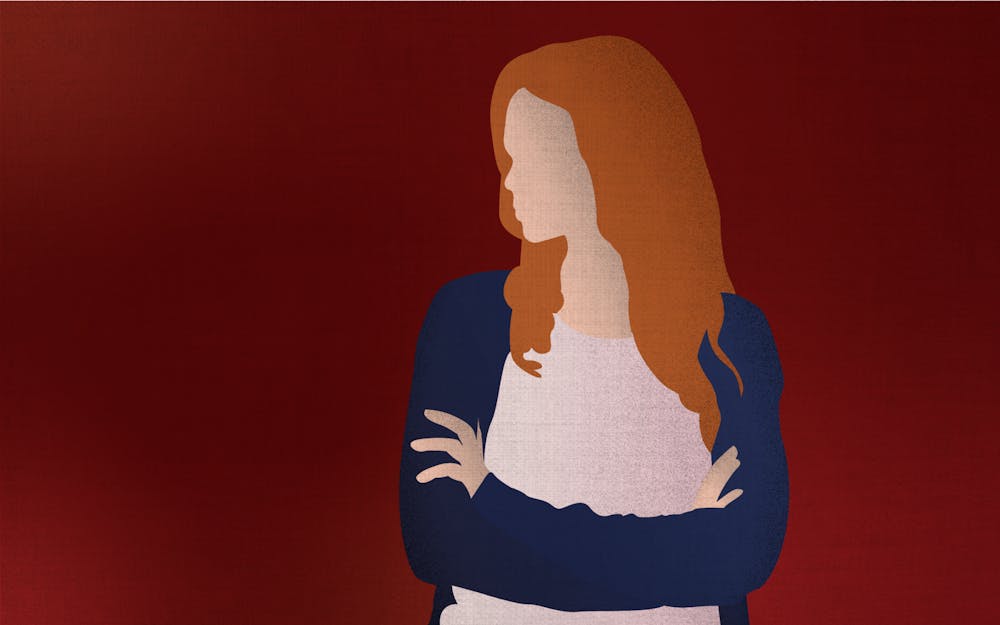The COVID-19 pandemic has forced me, like many others, to find joy in things normally considered ordinary or mundane.
I’m not sure what it is about my bimonthly trip to Aldi for example, but something about getting all new groceries for the week at a reasonable price sends my serotonin skyrocketing.
As someone particularly anxious about this pandemic, who has not been infected, I’m fairly conscious of the potential dangers of going anywhere and doing anything. I understand there are some calculated risks in any activity. As grocery shopping is a necessity, I wear two masks and hope for the best.
During one trip to Aldi, quarter in hand, I walked to the grocery carts only to be cut off by a complete stranger. I entered the store and patrons were going the wrong way down aisles clearly marked with arrows to enforce social distancing. They were out of avocados. I went on a Monday so the “special buy” section was bleak. Another stranger cut me off, making me overwhelmingly irritable.
This sequence of events seems to happen every time I go. Am I okay?
Before the pandemic, I considered myself fairly placid and good-natured. I wasn’t easily influenced by external behaviors and could write these encounters off as anomalies. Now, they seem ubiquitous. I’m frustrated, irritable and angry a lot of the time.
I’ve turned into a total curmudgeon at 20 years old.
Though I sometimes like to think so, I’m not alone in this phenomenon — Americans are actually a lot angrier in general these days. More than 80% report emotions associated with prolonged stress due to the pandemic and political unrest, according to the American Psychological Association.
These stressors and uncertainty about the future breed anxiety, which then forces us to find outlets for such emotions. Unfortunately, these outlets might produce unintended consequences.
For myself, these consequences include a perpetual scowl on my face when I’m out in public and see someone wearing a mask incorrectly or neglecting to put their shopping cart away. Or when I lash out at my loved ones because I have nowhere for my emotions to go.
Because the biggest problems associated with the pandemic are a culmination of things outside of our control, I feel hopeless and restless as my day-to-day activities seem to have no real effect or outcome on the world at large. It’s important to find healthy alternative outlets to the “wait and see” experience that is living in 2021, however.
Some strategies that might help include watching for signs that incite anger and allowing them to happen for a short period, according to experts quoted in the Washington Post. This allows you to feel your emotions before dealing with them in a constructive way, such as self-care. Others recommend limiting media exposure or distracting yourself with something incompatible with anger such as performing a small act of kindness.
I’ve found going on daily serotonin walks, as I like to call them, has kept me sane thus far.
Overall though, it’s really easy to feel mad at the world. All I have to do is read the news and see the latest egregious act of some politician or person on the other side of the political spectrum. I can look around and see all the lonely shopping carts in the parking lot awaiting an employee to bring them rightfully in line with the others.
However, as easy as it is to look at these shortcomings, it can be just as easy to see societal virtues.
My therapist often says we write our own narratives and dictate the story we tell ourselves each day — even if it doesn’t feel that way. We perpetuate our negative experiences internally, but we can also tell ourselves how strong we are by overcoming such obstacles.
It’s so much easier said than done and each circumstance is different, but taking small steps to change the way we view the world can be transformative.
I will not stop putting my shopping cart away or saying “excuse me” when brushing past another individual, even if it feels like I’m the only one doing so. If for nothing else, it at least makes me feel better about the kind of person I’m projecting and gives me hope that maybe someone else will do the same.
Behind every seemingly thoughtless act of self-servitude in someone else may be an internal struggle they don’t talk about. To get through this pandemic, maybe we all just need to cut each other a little more slack.
Natalie Gabor (she/her) is a junior studying journalism with minors in business marketing and philosophy. She hopes to one day find a career that tops her brief stint as a Vans employee.





